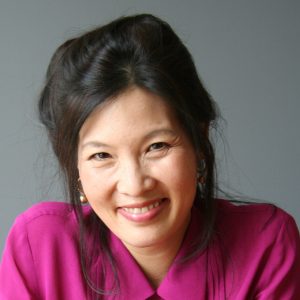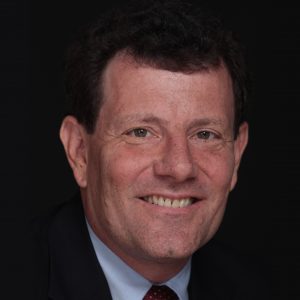Join Nick Kristof and Sheryl WuDunn for an intimate off-record discussion about capitalism by FDR’s fireplace.
In this age of globalization, automation, inequality, and climate change, do we need a new reckoning around capitalism and regulation like the one FDR provided in the 1930s?
Monday, April 8, 7:30-8:30pm, at the FDR Suite (Adams House B-17)
Limited to ten students. Undergraduates only. RSVP required.
Sheryl WuDunn
Hauser Visiting Leader, HKS Center for Public Leadership (Spring 2019)
Founder, FullSky Partners; Pulitzer Prize Winner
 Sheryl WuDunn, the first Asian-American reporter to win a Pulitzer Prize, is a business executive, lecturer, and best-selling author. Currently, she is co-founder of FullSky Partners, which works with socially-driven ventures, and a Venture Partner at Piedmont Partners Group Ventures, a small private equity group based in San Francisco.
Sheryl WuDunn, the first Asian-American reporter to win a Pulitzer Prize, is a business executive, lecturer, and best-selling author. Currently, she is co-founder of FullSky Partners, which works with socially-driven ventures, and a Venture Partner at Piedmont Partners Group Ventures, a small private equity group based in San Francisco.
Previously, Ms. WuDunn served as a vice president in the investment management division at Goldman, Sachs & Co. and as a commercial loan officer at Bankers Trust. She also worked at The New York Times as both an executive and journalist notably as a foreign correspondent for The Times in Tokyo and Beijing, where she wrote about economic, financial, political and social issues.
She is co-author of Half the Sky: Turning Oppression into Opportunity for Women Worldwide, a New York Times best-selling book about the challenges facing women around the globe.
With her husband Nicholas D. Kristof, she has co-authored two best-selling books about Asia: Thunder from the East and China Wakes. She and her husband are recipients of a Pulitzer Prize for their work covering China. Most recently, WuDunn and Kristof authored A Path Appears: Transforming Lives, Creating Opportunity that also inspired a PBS-documentary, which both provide a unique and essential narrative about making a difference in the world — and a roadmap to becoming a conscientious global citizen.
Ms. WuDunn received the Dayton Literary Peace Prize for Lifetime Achievement in 2011. That year Newsweek cited Ms. WuDunn as one of the “150 Women Who Shake the World.”
She graduated from Cornell University, where she is a member of the Board of Trustees. She earned an MBA from Harvard Business School and an MPA from Princeton University’s Woodrow Wilson School. She is a recipient of honorary degrees from the University of Pennsylvania and Middlebury College. She was a Senior Lecturer at Yale University’s Jackson Institute for Global Affairs in fall, 2011.
Nicholas Kristof
Hauser Visiting Leader, HKS Center for Public Leadership (Spring 2019)
Op-ed Columnist, The New York Times; Pulitzer Prize winner
 Nicholas D. Kristof, a columnist for The Times since 2001, is a two-time Pulitzer Prize winner who writes op-ed columns that appear twice a week. Mr. Kristof grew up on a sheep and cherry farm near Yamhill, Oregon. He graduated Phi Beta Kappa from Harvard College and then studied law at Oxford University on a Rhodes Scholarship.
Nicholas D. Kristof, a columnist for The Times since 2001, is a two-time Pulitzer Prize winner who writes op-ed columns that appear twice a week. Mr. Kristof grew up on a sheep and cherry farm near Yamhill, Oregon. He graduated Phi Beta Kappa from Harvard College and then studied law at Oxford University on a Rhodes Scholarship.
After joining The New York Times in 1984, initially covering economics, he served as a Times correspondent in Los Angeles, Hong Kong, Beijing and Tokyo. He later was Associate Managing Editor of The Times, responsible for Sunday editions. In 1990 Mr. Kristof and his wife, Sheryl WuDunn, then also a Times journalist, won a Pulitzer Prize for their coverage of China’s Tiananmen Square democracy movement. Mr. Kristof won a second Pulitzer in 2006, for commentary for what the judges called “his graphic, deeply reported columns that, at personal risk, focused attention on genocide in Darfur and that gave voice to the voiceless in other parts of the world.”
In his column, Mr. Kristof was an early opponent of the Iraq war. He among the first to warn that we were losing ground to the Taliban in southern Afghanistan and raise doubts about WMD in Iraq.
Mr. Kristof and Ms. WuDunn are authors of China Wakes: The Struggle for the Soul of a Rising Power, and Thunder from the East: Portrait of a Rising Asia. Together they wrote Half the Sky: From Oppression to Opportunity for Women Worldwide, which was the inspiration of The Half the Sky Movement that seeks to ignite the change needed to put an end to the oppression of women and girls worldwide. Most recently, Kristof and WuDunn authored A Path Appears: Transforming Lives, Creating Opportunity that also inspired a PBS-documentary, which both provide a unique and essential narrative about making a difference in the world — and a roadmap to becoming a conscientious global citizen.
